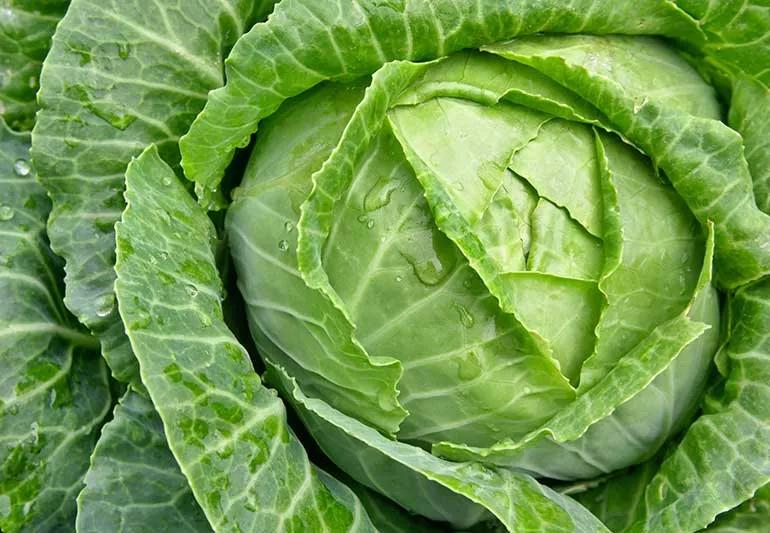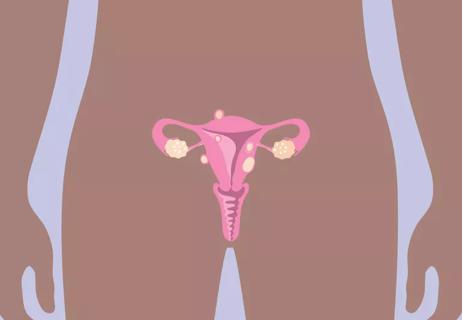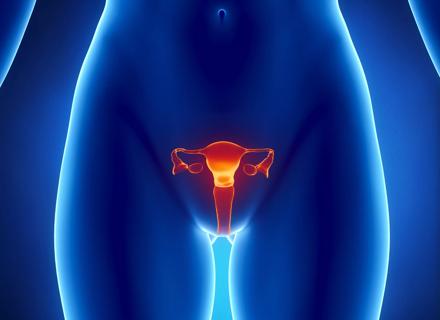Eating more fruits and veggies and less red meat could help prevent or shrink fibroids

If you have uterine fibroids and experience pain or heavy bleeding, you’re not alone. Up to 80% of all women develop fibroids before they hit menopause.
Advertisement
Cleveland Clinic is a non-profit academic medical center. Advertising on our site helps support our mission. We do not endorse non-Cleveland Clinic products or services. Policy
But do you have to accept uterine fibroids as a condition that’s completely out of your control? Maybe not.
Some research shows that certain foods could reduce your risk of fibroids or help tame symptoms like pain and heavy bleeding. Minimally invasive gynecologic surgeon Megan Billow, DO, explains what your diet can — and can’t — do for uterine fibroids.
“There’s no single diet that will work magically to prevent or treat fibroids,” Dr. Billow says. “But some studies suggest that certain foods may lower your risk of fibroids. Diet changes may minimize symptoms by lowering amounts of the hormones that fuel fibroids.”
If you’re hoping to avoid fibroids or improve your symptoms, eat more of these potentially fibroid-fighting foods.
Eating plenty of fruits and vegetables lowers your risk of many health problems, including heart disease and certain types of cancer. And it turns out, they may also help lower your risk of getting uterine fibroids.
“A large review found that people who ate more fruits and vegetables were at lower risk of getting fibroids,” says Dr. Billow. “The research suggests that patients who ate four servings per day had a lower fibroid risk compared to patients who ate one serving per day.”
Advertisement
All fruits and vegetables have major health benefits, but these kinds seem to be particularly helpful in fighting fibroids:
Why do fruits and vegetables help prevent fibroids? Some research on fibroids and diet suggests a few possible reasons:
Some research suggests that calcium-rich dairy products may lower your risk of fibroids. “Aim to get three servings of low-fat or fat-free dairy products each day,” Dr. Billow advises. Focus on yogurt that contains probiotics — beneficial bacteria that keep your gut healthy.
Eating the right amount of dairy isn’t a guarantee that you’ll stay fibroid-free. But it could be helpful for some people. “More research is needed to prove that dairy can help with fibroids,” notes Dr. Billow. “But your body benefits from calcium and probiotics, so it’s worth considering.”
If you’re lactose intolerant, look for plant-based milk, yogurt or cheese. Many of these contain added probiotics and calcium. Check the nutrition label for their calcium content, and look for “live and active cultures” on yogurt labels.
Vitamin D is important for bone, immune and nerve health. And some research suggests getting enough vitamin D lowers your risk of fibroids.
Food sources of vitamin D include:
“Vitamin D deficiency is often seen in women with fibroids,” says Dr. Billow. “Raising your vitamin D levels could help you avoid this condition.”
How do you know if you’re deficient in vitamin D? You can’t know for sure without a blood test, but vitamin D deficiency is common.
“It’s hard to correct vitamin D deficiency with diet alone,” Dr. Billow adds. “The main way people get vitamin D is through unprotected sun exposure. But venturing out without sunscreen comes with the risk of sunburn, premature aging and skin cancer.”
Advertisement
And if you live in a northern climate, you might go months without enough sunlight to keep your D levels up. People with darker skin tones also have a higher risk of deficiency because their skin doesn’t make as much vitamin D.
A vitamin D supplement could help you sidestep uterine fibroids, but ask your provider first. “If you already have good levels of vitamin D, a supplement probably isn’t necessary, and could be harmful,” Dr. Billow cautions. “Always tell your provider about any vitamins or herbal supplements you take.”
While some foods may help decrease your risk of fibroids, others may have the opposite effect. Some research suggests limiting or avoiding these foods:
A diet high in red meat, like ground beef, steak, veal or ham, has some possible health risks, like heart disease and cancer. And red meat might also play a role in uterine fibroid formation, although more research is needed to confirm this link.
“In some studies, people with uterine fibroids reported eating more red meat and ham than people who didn’t have fibroids,” says Dr. Billow. “We don’t yet know if it’s due to their unhealthy saturated fats, pollutants or some combination of these factors.”
This doesn’t necessarily mean burgers are off the table. Try saving these meats for special occasions. Aim to eat no more than 6 ounces of red meat per week, or 3 ounces if you have heart disease. To get less saturated fat when eating these meats, you can:
Advertisement
Drinking alcoholic beverages like beer, wine and spirits can affect your overall health and possibly your fibroid risk. Some research shows that drinking alcohol, especially in higher amounts, changes hormones in your body. These hormonal changes can lead to fibroid formation.
“If you want to improve your health and lower your fibroid risk, avoid alcohol,” advises Dr. Billow. “If you do drink, limit yourself to moderate amounts.” This means:
Fibroid symptoms can be hard to live with. Understandably, many people turn to online advice and supplements for possible solutions. But be careful — these “miracle cures” are usually ineffective and a waste of your money, at best. At worst, they can be dangerous.
“Don’t use a supplement or take someone’s advice on social media instead of getting recommended medical care,” states Dr. Billow. “There’s no evidence that any natural supplements will cure or shrink fibroids. And if you don’t see your provider regularly, you could miss out on important health screenings.”
Advertisement
While you’re working on eating more fibroid-friendly foods, also consider more physical activity. Don’t worry: You don’t have to join a gym or sweat through strenuous spin classes to reap some benefits.
“Daily movement like walking can minimize fibroid symptoms if you pair it with diet changes,” Dr. Billow says. “Regular exercise can boost endorphins, which are natural pain fighters. And more physical activity benefits your mental health, too.”
And like a healthy diet, exercise can help you lose any excess pounds and lower your estrogen levels. “Fighting fibroids is really about adopting an overall healthy lifestyle,” she adds. “Together, diet changes and exercise are a powerful way to balance your hormones naturally.”
Tweaking your diet is a step in the right direction if you want to decrease your risks of fibroids. And a diet rich in fruits and veggies and low in fatty meats can boost your overall health.
“There’s no guarantee that certain foods will prevent or shrink fibroids in everyone,” notes Dr. Billow. “But a healthy diet provides many health benefits that will help you feel your best. It could help boost your energy levels and help you achieve a healthy weight. You’ll also lower your risk of heart disease, diabetes and cancer.”
Even though we know it’s good for us, it can be difficult to change your diet. Don’t be too hard on yourself if you struggle — and don’t try to make big, sweeping changes all at once. Slowly replace red meat and less nutritious processed foods with fruits and vegetables to help build healthier habits.
“You may find that eating healthy foods gets easier with time because you feel better,” says Dr. Billow. “Don’t look at diet changes as a miracle cure, but as an investment in yourself and your overall health.”

Sign up for our Health Essentials emails for expert guidance on nutrition, fitness, sleep, skin care and more.
Learn more about our editorial process.
Advertisement

To help manage symptoms, switch to more absorbent period products, make healthy lifestyle changes and explore treatment options

Depending on their size, these noncancerous growths can create an abdominal bulge

Depending on size and location, they can affect your rectum, stomach, bladder and kidneys

How uterine fibroids can change with your body

If you’re living through fatigue due to fibroids, there are ways to cope

Treatments can help, besides a hysterectomy

Keto can reduce blood sugar, but that doesn’t mean it’s right for everyone

People with PKU need to avoid high-protein foods, like meat, dairy, legumes and whole grains

Even small moments of time outdoors can help reduce stress, boost mood and restore a sense of calm

A correct prescription helps your eyes see clearly — but as natural changes occur, you may need stronger or different eyeglasses

Both are medical emergencies, but they are very distinct events with different causes